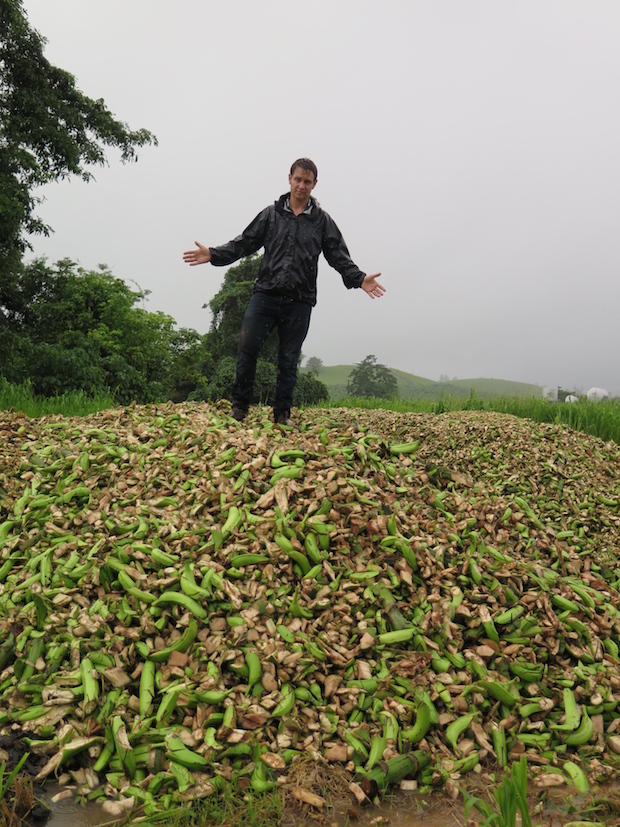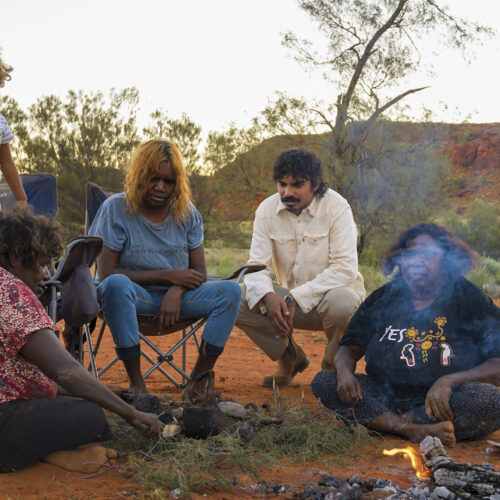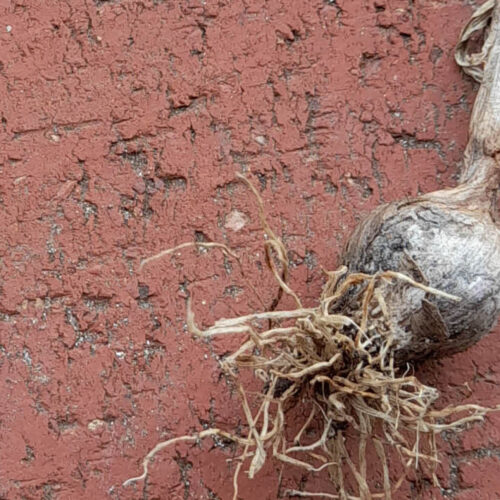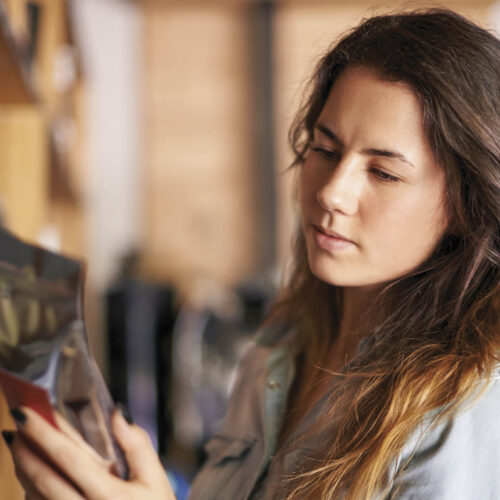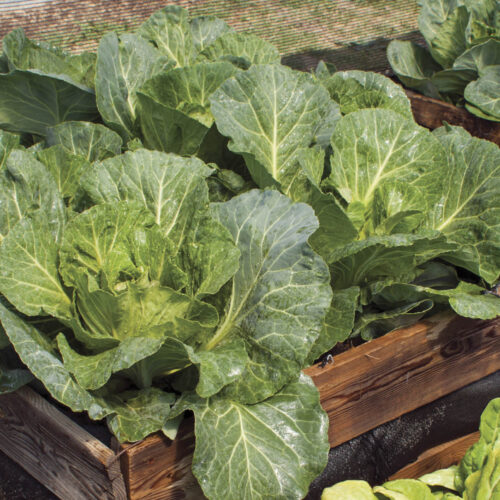War on Waste
2017-11-23T01:49:28+11:00
Inspired by the ABC’s War on Waste, Jessamy Miller shares invaluable tips and techniques for reducing, reusing and recycling.
We’ve reached that point. We are regularly throwing away so much food, clothing, appliances and plastic packaging that our waste is growing at double the rate of our population. Sound depressing? It is, but you would be amazed at how good it feels to be doing something meaningful about it. I thought I knew slightly more than the average ‘eco worrier’ about cutting waste but watching the ABC’s 2017 three-part series War on Waste, hosted by Craig Reucassel, has inspired my family to further reduce the waste in our bin by half!
In the ABC series War on Waste, it was horrifying seeing thousands of green bananas pulped for landfill. Reucassel discovered Australian supermarkets enforce strict cosmetic standards; the quirky vegies I pull from my patch have Buckley’s of making it to their shelves.
“Up to 40 per cent of bananas are too short, fat, long or ugly, so are wasted,” Reucassel says.
Not only that, but some non-organic crops, such as potatoes, are routinely sprayed to kill them and halt growth at the optimum supermarket size.
Buying produce from farmers markets, via an organic box delivery or joining a Community Supported Agriculture (CSA) scheme will bypass this wasteful supermarket cycle. However, if you can’t grow your own or access them from a farmers market, then lobbying supermarkets to accept a wider range of shapes and sizes is a start, or routinely buying odd-looking fruit and vegies that don’t fit the mould.
Farmers market and CSA food is fresh, seasonal and grown locally, so has fewer food miles. Money goes straight to the grower and allows you to support organic farming practices. There is little food wastage due to cosmetic standards, and no excessive packaging when you BYO bags.
Of course, growing your own fruit and vegies in the backyard is always the top option for fresh, cost-effective, eco-friendly local food.
Reduce food waste
In the home, we are throwing out one in every five bags of groceries we buy. “The average family wastes $3500 on food a year,” Reucassel says. Food waste in landfill decomposes anaerobically, releasing methane, a gas with 25 times the global warming potential of carbon dioxide. To make a huge environmental impact, simply divert food scraps to a worm farm, compost bin or the chooks.
Even better, plan menus ahead, stick to your shopping list, and eat more of the food you’ve bought. Websites such as Tammy Logan’s Gippsland Unwrapped (see Useful Links,
below) share strategies for running a thrifty home. I’ve found myself chopping up vegie stalks and ends and freezing them to put in soup or stock later, and enjoying roasted broccoli stalks.
Go plastic free
Every year Australians use around 5 billion plastic bags; 85 per cent of these end up in landfill. Tammy Logan says, “We are throwing away a material designed to last forever after minutes of use.” Logan has chosen to eliminate single-use and disposable plastic items such as bags, straws and bottled water, and to use her consumer power to drive change. “Plastic-free living isn’t an all or nothing endeavour though,” she says. “Just make good choices whenever you can and stick at it.”
Easy ways to reduce plastic include using fabric shopping bags and netting produce bags, buying foods in bulk from health food stores or food coops and taking your own glass or reusable containers to the butcher (thus avoiding the ubiquitous plastic trays all supermarket meat seems to be sold in these days, along with sachets to extend their life).
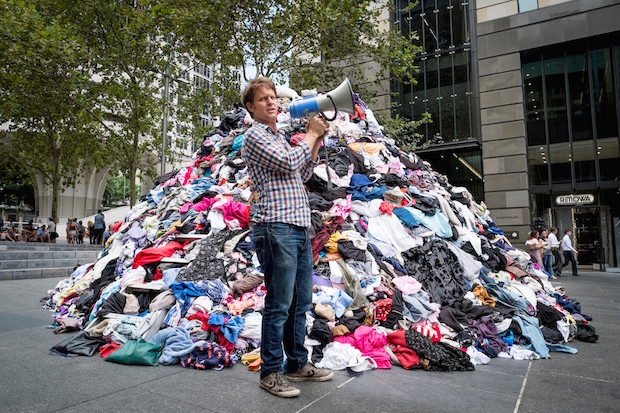
Mend and make do
When it comes to furniture and appliances, the concept of ‘built to last’ has been replaced by ‘built-in obsolescence’. However, repair cafes that have sprung up, such as Marrickville’s The Bower in Sydney, provide an alternative to throwing items out.
Just take an appliance along and get it repaired. Additionally, online sites including iFixit share manuals on how to mend everything from a laptop to a lamp. People are taking back the right to repair, and saving a fortune.
Need a new outfit? “Our consumption of fast fashion is resulting in 6000 kilograms of clothing waste being produced every 10 minutes,” Reucassel says. Yet, according to WWF, it takes 2700 litres of water to make one cotton T-shirt. Instead of buying new clothes, source them from the op shop, have swap nights with friends, or join the slow-fashion movement. I’ve been inspired by crafters such as Jane Milburn, who created a new outfit from a piece of cast-off clothing every day in 2014 for her Sew It Again project.
Greener gardens
Reducing waste doesn’t stop at the back door; in the garden, plastic pots can be rinsed and put in the recycling bin, or returned to nurseries for reuse. If possible, turn green and brown waste into compost and mulch. I use chook feed bags as plant protectors held up with stakes, sew them into shopping bags, or cart leaves in them.
Where to start your War on Waste?
Just making a few small changes in our habits can make a huge difference. And it feels good.
- Check your local council website so you are on point with your knowledge of what they recycle, and what other collection services they offer.
- If your household has soft plastic waste, collect it each week and leave at a REDcycle collection bin for recycling, outside Coles.
- Use a compost bin or worm farm to manage food waste.
- Keep a stash of fabric bags in the car, at work and in your handbag so you don’t need to use plastic bags.
- Carry around a reusable coffee cup and water bottle.
Useful links
- War on Waste: abc.net.au/ourfocus/waronwaste/
- Plastic-free lifestyle: gippslandunwrapped.com
- Eco lifestyle: 1millionwomen.com.au</li> <li> Manuals to repair everything: ifixit.com
- The Bower Reuse & Repair Cafe, Marrickville: bower.org.au/repaircafe/
- Repair Cafes worldwide: repaircafe.org/en/visit/
- Slow fashion inspiration: sewitagain.com

